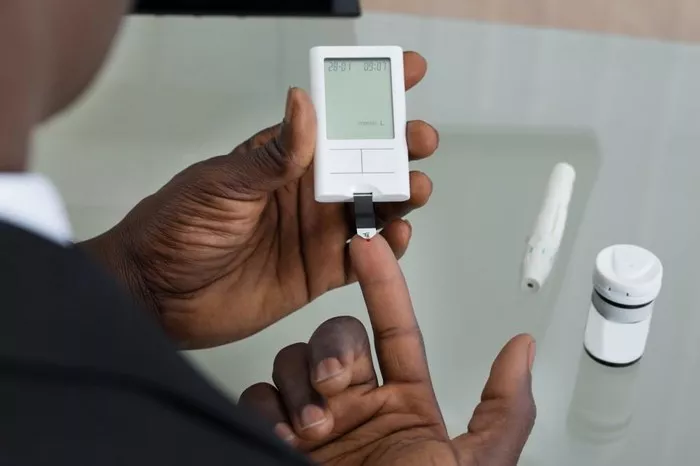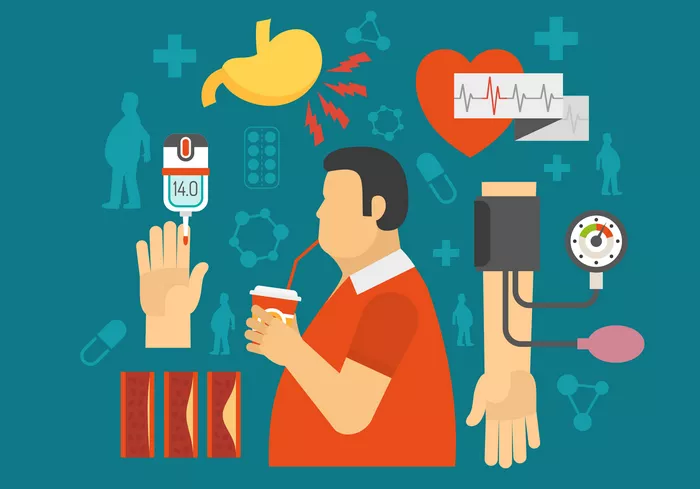Hypoglycemia, or low blood sugar, is a common complication in individuals managing diabetes, particularly those on insulin or other glucose-lowering medications. While hypoglycemia can occur at any time, nocturnal hypoglycemia—episodes that happen during sleep—poses unique challenges and dangers. Understanding why hypoglycemia occurs at night and how to manage and prevent it is crucial for maintaining overall health and well-being in diabetic patients.
Understanding Hypoglycemia
Hypoglycemia is defined as a blood glucose level below 70 mg/dL. Symptoms can range from mild (sweating, trembling, hunger) to severe (confusion, seizures, loss of consciousness). In diabetics, hypoglycemia typically results from an imbalance between insulin administration, food intake, and physical activity. Nocturnal hypoglycemia is particularly concerning because individuals are less likely to recognize symptoms and respond promptly when they are asleep.
Why Nocturnal Hypoglycemia Happens
1. Physiological Changes During Sleep
During sleep, the body’s metabolic rate decreases, leading to reduced glucose production and utilization. Insulin sensitivity also increases overnight, which can enhance the glucose-lowering effect of insulin. The liver’s production of glucose via gluconeogenesis slows down, and the counter-regulatory hormone response, which includes hormones like glucagon and adrenaline, may be blunted during sleep. These factors collectively increase the risk of hypoglycemia at night.
2. Insulin Regimens
The timing and type of insulin used can significantly impact nocturnal blood sugar levels. Long-acting insulins, such as glargine or detemir, are designed to provide a steady basal level of insulin over 24 hours. However, if the dose is too high or if an individual is particularly sensitive to insulin, it can lead to a drop in blood sugar during the night. Similarly, using rapid-acting insulins for dinner or bedtime snacks without adequate carbohydrate intake can precipitate hypoglycemia several hours later.
3. Medication Timing and Dosage
Oral medications for diabetes, such as sulfonylureas (e.g., glipizide, glyburide), can also contribute to nocturnal hypoglycemia. These medications stimulate the pancreas to release insulin, which can lead to a prolonged effect and unexpected blood sugar drops during the night. Other drugs, such as GLP-1 receptor agonists and SGLT2 inhibitors, while generally less likely to cause hypoglycemia, can still contribute if combined with other hypoglycemic agents.
4. Dietary Factors
What and when you eat play significant roles in nighttime blood sugar control. Skipping dinner or having an insufficient carbohydrate intake can set the stage for nocturnal hypoglycemia. Alcohol consumption, particularly in the evening, can further exacerbate this risk. Alcohol inhibits gluconeogenesis in the liver, which is a crucial backup mechanism for maintaining blood glucose levels during fasting periods, such as overnight.
5. Physical Activity
Exercise, especially strenuous or prolonged physical activity, can lead to increased insulin sensitivity and glucose uptake by muscles for up to 48 hours post-exercise. If exercise occurs in the evening without appropriate adjustments in insulin or carbohydrate intake, this heightened sensitivity can cause a delayed hypoglycemic response during sleep.
Identifying Nocturnal Hypoglycemia
Recognizing nocturnal hypoglycemia is challenging since symptoms occur while asleep. However, certain signs and symptoms upon waking can indicate a hypoglycemic event during the night:
- Unexplained morning headaches.
- Waking up feeling unusually tired or groggy.
- Night sweats.
- Vivid or disturbing dreams.
- Elevated blood glucose levels in the morning, a phenomenon known as the “Somogyi effect,” where an overnight hypoglycemic episode triggers a rebound hyperglycemia.
Monitoring and Diagnosis
Continuous Glucose Monitoring (CGM)
Continuous glucose monitors are invaluable tools for detecting nocturnal hypoglycemia. CGMs provide real-time glucose readings and trends, alerting users to dropping blood glucose levels even while they sleep. This technology can help patients and their healthcare providers understand patterns and make necessary adjustments to insulin regimens or dietary habits.
Self-Monitoring of Blood Glucose (SMBG)
Frequent SMBG, particularly before bed and upon waking, can help identify trends and potential issues with nocturnal blood glucose control. For those without access to a CGM, setting an alarm to check blood sugar levels during the night may be necessary, especially if nocturnal hypoglycemia is suspected.
Prevention and Management
Adjusting Insulin Regimens
One of the primary strategies for preventing nocturnal hypoglycemia involves tailoring insulin regimens. This might include:
- Basal Insulin Adjustment: Reducing the dose of long-acting insulin can prevent overnight blood glucose levels from falling too low. In some cases, switching to an insulin pump can provide more precise basal insulin delivery.
- Timing of Insulin: Administering basal insulin earlier in the evening rather than at bedtime can reduce the risk of nocturnal hypoglycemia.
- Insulin Pump Therapy: Using an insulin pump allows for better control over basal insulin rates and can be adjusted hourly to prevent nighttime hypoglycemia.
Dietary Strategies
Ensuring adequate carbohydrate intake before bed is essential. Options include:
- Bedtime Snacks: A small snack containing complex carbohydrates and protein can help maintain stable blood glucose levels overnight.
- Evening Meals: Eating a balanced dinner with an appropriate amount of carbohydrates can also prevent nocturnal hypoglycemia. Avoiding high glycemic index foods that can cause rapid spikes and subsequent drops in blood sugar is advisable.
Exercise Considerations
Adjusting exercise routines and planning can mitigate the risk of nocturnal hypoglycemia:
- Timing of Exercise: Exercising earlier in the day rather than late evening can reduce the risk of delayed hypoglycemia.
- Post-Exercise Snacks: Consuming a snack with both carbohydrates and protein after exercise can help maintain blood glucose levels overnight.
- Insulin Adjustment: Reducing the insulin dose before and after exercise can also help prevent post-exercise hypoglycemia.
Medication Review
Reviewing and possibly adjusting the dosages or timing of glucose-lowering medications can reduce the risk of nocturnal hypoglycemia. This might involve:
- Reducing Sulfonylureas: Lowering the dose or switching to a different class of medication with a lower risk of hypoglycemia.
- Combining Therapies: Using combination therapies that include agents with a lower hypoglycemia risk, such as metformin, DPP-4 inhibitors, or SGLT2 inhibitors.
Emergency Management of Nocturnal Hypoglycemia
Despite best efforts, nocturnal hypoglycemia can still occur. Preparing for these events is crucial:
- Glucagon Kits: Keeping a glucagon emergency kit bedside can provide a quick remedy in case of severe hypoglycemia. Educating family members on how to use glucagon is essential.
- Fast-Acting Carbohydrates: Having glucose tablets or gels readily available can provide immediate relief from mild to moderate hypoglycemic episodes.
Patient Education and Support
Educating patients about nocturnal hypoglycemia, its causes, and prevention strategies is a cornerstone of effective diabetes management. Patients should be encouraged to:
- Understand Symptoms: Recognize the signs of nocturnal hypoglycemia and take proactive measures.
- Communicate with Healthcare Providers: Regularly discuss blood glucose patterns and any nocturnal hypoglycemic episodes with their healthcare team to adjust treatment plans accordingly.
- Utilize Technology: Embrace technologies such as CGMs and insulin pumps that can help manage and prevent nocturnal hypoglycemia.
Conclusion
Nocturnal hypoglycemia presents a significant challenge in diabetes management, with the potential for severe consequences if left unaddressed. By understanding the physiological, medication-related, dietary, and activity-related factors that contribute to nighttime blood sugar drops, patients and healthcare providers can work together to develop personalized strategies to prevent and manage nocturnal hypoglycemia. Continuous monitoring, patient education, and timely adjustments in treatment plans are essential components of effective diabetes care, ensuring that patients maintain stable glucose levels and reduce the risk of nocturnal hypoglycemic events.
Related topics:
About Stress-Induced Hypoglycemia



























